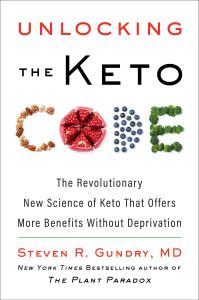Зарегистрируйтесь на getAbstract, чтобы получить доступ к этому краткому изложению.

Зарегистрируйтесь на getAbstract, чтобы получить доступ к этому краткому изложению.
Steven R. Gundry
Unlocking the Keto Code
The Revolutionary New Science of Keto That Offers More Benefits Without Deprivation
Harper Wave, 2022
Что внутри?
Learn why keto diets often fail – and a better way to put ketones to work for health and longevity.
Recommendation
Keto diets have been getting it wrong all along, contends renowned cardiologist Steven R. Gundry – and that’s why so many people fail to see results. Instead of acting as a super fuel, ketones play a key role in regulating metabolism within the cells, Gundry argues. This insight forms the basis of the Keto Code, a detailed, multifaceted program to alter mitochondrial function and help you lose weight, get healthier and live longer. According to Gundry, the Keto Code program offers all the benefits of a traditional ketogenic diet, with far more flexibility and fewer restrictions. Alongside thorough descriptions of the science, Gundry provides recipes and tips for food preparation.
Summary
About the Author
Steven R. Gundry is a cardiac surgeon, medical researcher and founder of the Center for Restorative Medicine in Palm Springs, California. His books include Dr. Gundry’s Diet Evolution and The Plant Paradox.


















Comment on this summary